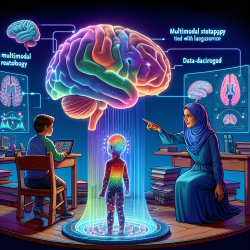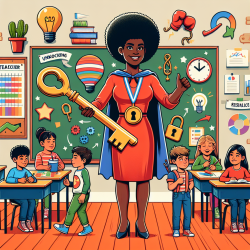The study titled "The characteristics, life circumstances and self-concept of 13 year olds with and without disabilities in Ireland: A secondary analysis of the Growing Up in Ireland (GUI) study" provides a comprehensive overview of the social and educational circumstances of children with disabilities in Ireland. This blog post will discuss key findings and offer actionable insights for practitioners to improve their support strategies.
Key Findings from the Study
- 17.36% of 13-year-olds were reported to have a developmental disability.
- Children with disabilities are more likely to live in lower-income households and experience poorer health.
- 49% of children with disabilities were not receiving any support in school.
- There are significant associations between disabilities and low self-concept scores in behavioral adjustment, intellectual/school status, and popularity.
Actionable Insights for Practitioners
To create better outcomes for children with disabilities, practitioners can implement the following strategies:
1. Holistic Assessment and Individualized Support Plans
Given the complex social and educational needs of children with disabilities, it is essential to conduct holistic assessments that consider both individual and environmental factors. Tailored support plans should be developed, addressing specific needs in academic, social, and emotional domains.
2. Inclusive Educational Practices
Inclusive practices are crucial for improving self-concept and educational outcomes. This includes adapting teaching methods, providing necessary resources, and fostering an inclusive classroom environment that promotes acceptance and peer support.
3. Enhanced Training for Educators
Teachers and support staff should receive ongoing training to better understand and meet the needs of students with disabilities. Training should cover a range of topics, including differentiated instruction, behavioral management, and the use of assistive technologies.
4. Collaboration with Health Professionals
Collaboration between educators and health professionals such as speech-language therapists, occupational therapists, and psychologists is vital. This multidisciplinary approach ensures that children receive comprehensive support that addresses all aspects of their development.
5. Addressing Bullying and Promoting Positive School Experiences
Schools should implement anti-bullying programs and create a positive school culture. Encouraging peer mentoring and providing safe spaces for students to express themselves can significantly improve their school experience and self-concept.
Encouraging Further Research
The findings from this study highlight the need for further research to understand the specific needs of children with different types of disabilities. Practitioners are encouraged to engage in or support research initiatives that explore effective interventions and support mechanisms.
To read the original research paper, please follow this link: The characteristics, life circumstances and self-concept of 13 year olds with and without disabilities in Ireland: A secondary analysis of the Growing Up in Ireland (GUI) study.










